Kumar Shikhar Deep
Related Tasks can Share! A Multi-task Framework for Affective language
Feb 06, 2020
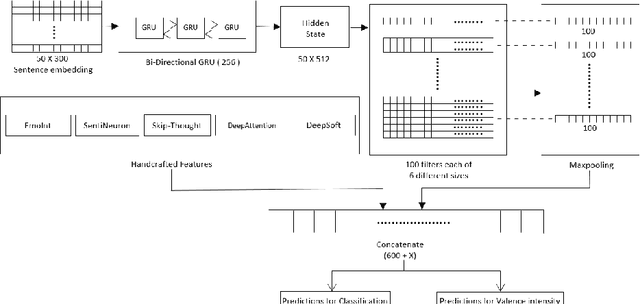
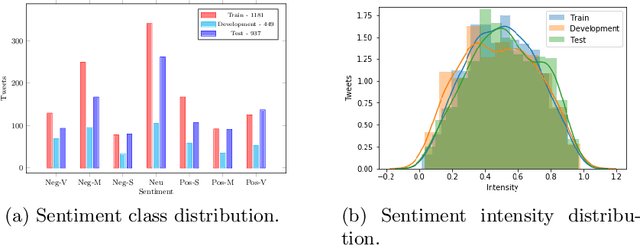

Abstract:Expressing the polarity of sentiment as 'positive' and 'negative' usually have limited scope compared with the intensity/degree of polarity. These two tasks (i.e. sentiment classification and sentiment intensity prediction) are closely related and may offer assistance to each other during the learning process. In this paper, we propose to leverage the relatedness of multiple tasks in a multi-task learning framework. Our multi-task model is based on convolutional-Gated Recurrent Unit (GRU) framework, which is further assisted by a diverse hand-crafted feature set. Evaluation and analysis suggest that joint-learning of the related tasks in a multi-task framework can outperform each of the individual tasks in the single-task frameworks.
A Deep Neural Framework for Contextual Affect Detection
Jan 28, 2020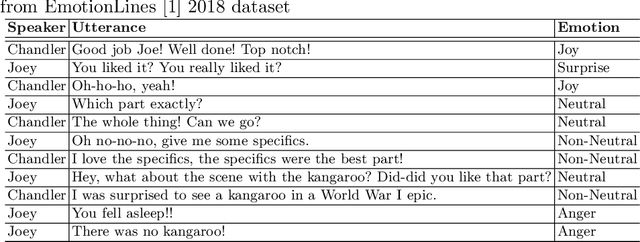
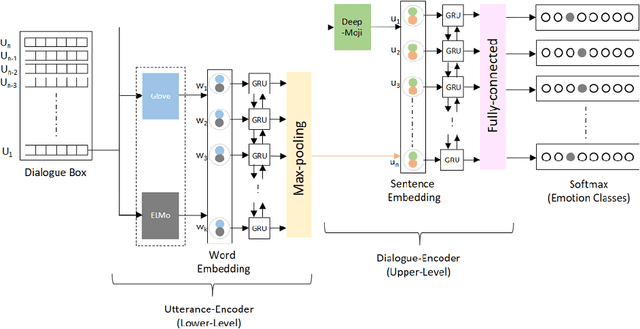
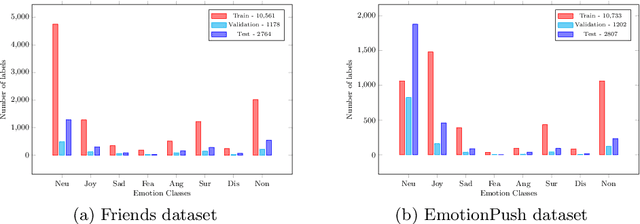

Abstract:A short and simple text carrying no emotion can represent some strong emotions when reading along with its context, i.e., the same sentence can express extreme anger as well as happiness depending on its context. In this paper, we propose a Contextual Affect Detection (CAD) framework which learns the inter-dependence of words in a sentence, and at the same time the inter-dependence of sentences in a dialogue. Our proposed CAD framework is based on a Gated Recurrent Unit (GRU), which is further assisted by contextual word embeddings and other diverse hand-crafted feature sets. Evaluation and analysis suggest that our model outperforms the state-of-the-art methods by 5.49% and 9.14% on Friends and EmotionPush dataset, respectively.
* 12 pages, 5 tables and 3 figures. Accepted in ICONIP 2019 (International Conference on Neural Information Processing) Published in Lecture Notes in Computer Science, vol 11955. Springer, Cham https://link.springer.com/chapter/10.1007/978-3-030-36718-3_34
 Add to Chrome
Add to Chrome Add to Firefox
Add to Firefox Add to Edge
Add to Edge